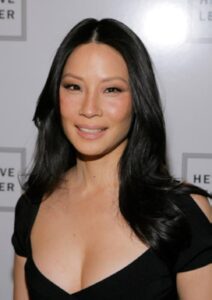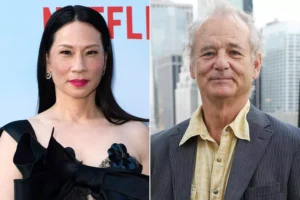Lucy Liu Reveals Why She Called Out Bill Murray’s Bad Behavior on Set of ‘Charlie’s Angels’
In recent years, many actors have come forward to discuss their experiences with toxic behavior on Hollywood sets, and Lucy Liu has emerged as a strong voice in that conversation. In interviews reflecting on her career, Liu has openly revisited an infamous confrontation with actor Bill Murray during the filming of the 2000 action-comedy Charlie’s Angels. Her decision to speak out against what she described as “inexcusable and unacceptable” behavior was not just a personal stand—it became a broader statement about respect, boundaries, and power dynamics in the entertainment industry.
The Incident That Sparked It All
The altercation occurred during a rehearsal for a scene in Charlie’s Angels. According to Liu, Bill Murray had been absent from some rehearsals, during which changes to a scene were made. When he returned and discovered the modifications, he was reportedly upset and began to lash out—singling out Liu in particular. Although the exact wording of Murray’s remarks has not been publicly disclosed, Liu described his comments as “derogatory” and directed at her in a way that felt intentionally humiliating.
Initially unsure if the insults were aimed at her, Liu quickly realized they were when he continued. She recalled standing up to him in the moment, saying, “I don’t care what Bill Murray thinks. If you confront me, I will attack.” Her reaction wasn’t premeditated; it was a matter of self-respect and refusing to accept verbal abuse, regardless of the other person’s status or reputation.
Why She Spoke Out
Years later, when asked about the confrontation, Liu emphasized that speaking out wasn’t about holding a grudge—it was about drawing a line. She explained in an interview with The Guardian that standing up to Murray wasn’t just about defending herself in that moment; it was about taking a principled stand. “I stood up for myself, and I don’t regret it,” Liu stated. “Because no matter how much power someone has, if they’re being disrespectful, you have every right to defend yourself.”
For Liu, the incident also became an important moment in asserting her worth in an industry where Asian American women are often marginalized or typecast. She didn’t want to become the “quiet, polite” stereotype that is often projected onto Asian women. By standing her ground, she rejected that image and showed that she deserved the same respect as any of her co-stars.
Support from Her Co-Stars
Lucy Liu didn’t have to face the fallout alone. Drew Barrymore, who played one of the other angels and was also a producer on the film, came forward years later to express her full support for Liu. Barrymore recalled how the moment was deeply uncomfortable for everyone on set but confirmed that Liu had every right to react as she did.
Barrymore said in a separate interview, “What really happened was Bill was just in a bad mood, and he came in and started to sort of throw insults, and it didn’t matter if it was her or someone else.” However, Barrymore emphasized that Liu’s reaction was justified, adding, “Lucy is not someone who needs to be told what to do. She’s a badass.”
Cameron Diaz, the third lead in the Charlie’s Angels trio, also reportedly stood by Liu’s side during the incident. Their collective support helped underscore the point that respect and professionalism should be expected from everyone on set, regardless of their seniority or fame.
The Broader Implications
Liu’s decision to speak up was not only about one moment with one actor. It echoed the experiences of many performers—especially women and minorities—who have had to navigate disrespect and inappropriate behavior in the workplace. Her confrontation with Bill Murray helped bring attention to the larger, systemic issues of how certain stars are treated differently or given a pass for bad behavior due to their status.
She has since reflected that remaining silent might have made her career easier in the short term, but she felt it was more important to remain true to her values. The incident sparked quiet admiration from many crew members, some of whom later approached Liu to thank her for standing up. This confirmed for her that sometimes speaking up has ripple effects beyond what’s visible.
The moment also helped her realize that her silence—or any actor’s silence—could contribute to a culture of permissiveness around disrespectful behavior. Liu explained, “If I didn’t speak up, it could have sent the message that it was okay to treat people like that.”
A Legacy of Strength
In the years since Charlie’s Angels, Liu has continued to build a strong and diverse career. From starring in hit TV series like Elementary to becoming a director and producer, she has proven that strength, talent, and grace can go hand-in-hand. And while she didn’t let one moment define her career, her decision to speak up became a defining example of how to hold others accountable, even when it’s uncomfortable or risky.
Ultimately, Lucy Liu’s story isn’t just about what happened on one movie set over two decades ago. It’s about what happens when someone decides that their dignity matters more than staying silent. In a world where women—especially women of color—are still fighting to be heard and respected, Liu’s courage resonates as both timeless and timely.













